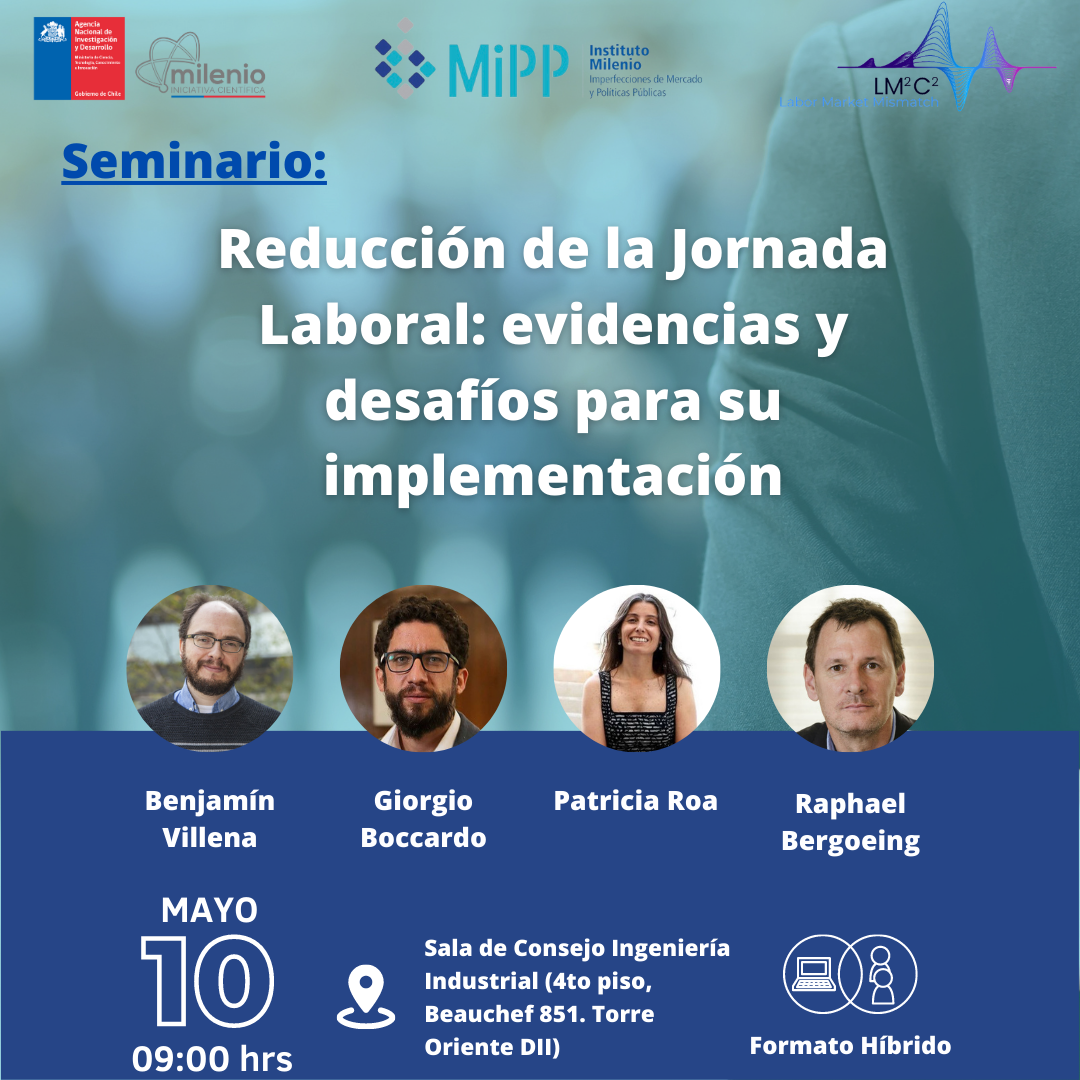
On Wednesday, May 10, the MIPP Millennium Institute organized a seminar related to the bill that was promulgated on May 1 and that its entry into force will be gradual, with a maximum period of five years for companies to apply the new working hours.
On April 12, the Chamber of Deputies approved the 40-hour law, after six years of discussion, and on May 1 it was promulgated by the President of the Republic, Gabriel Boric, giving way to the gradual process of implementation of the new working day in the country. Along these lines, companies will have a maximum period of up to five years to apply the law, with workers going from a 45-hour day to 44 hours in the first year of its validity, 42 in the third year and 40 in the fifth, but firms can anticipate and apply the new schedule immediately.
In this context, on Wednesday, May 10, the Millennium Institute for Market Imperfections and Public Policies (MIPP) and the LM2C2 Millennium Nucleus held the seminar “Reducing the Working Hours: Evidence and Challenges for its Implementation.” The event was held on Beauchef 851, but was also broadcast via Zoom.
The seminar was attended by Benjamín Villena, an academic at the Andrés Bello University and a researcher at the MIPP Millennium Institute and the LM2C2 Millennium Nucleus; Giorgio Boccardo, Undersecretary of Labor; Patricia Roa, Programming Officer of the International Labor Organization (ILO); and Raphael Bergoeing, president of the National Evaluation and Productivity Commission (CNEP).
Benjamín Villena, a researcher at the MIPP Millennium Institute and co-author of a study that analyzed the impact of the reduction in the working day from 48 to 45 hours in Chile implemented in 2005, affirms that “it must be taken into account that technology will continue to facilitate the model work from home, which has become a competitive factor for companies. The labor market has expanded, today a company can hire teleworkers literally all over the world, there are lower costs for physical space and this can also lead to productivity gains. In my opinion, this is going to bring a greater demand for flexibility from people and companies, so its introduction into the working day, with a reference workday of 40 hours, seems to me a positive sign and perhaps more progress can be made in that direction. ”.
Giorgio Boccardo, Undersecretary of Labor, points out that “it is a bill that incorporated several elements that will allow not only reducing the working day, but also adapting to different business realities. Today the distribution of the working day can be done between 4 and 6 days, not only between 5 and 6 days as the previous law said. This is going to mean more tools so that people can adapt their ways of life and work to the working day, which is also a day that is being evaluated in many countries with quite good results in terms of job satisfaction and productivity, and we are going to have to see how it works in Chile”.
Raphael Bergoeing, president of the National Evaluation and Productivity Commission (CNEP) highlighted the importance of evaluating the impact of the new law and explained that “in Chile we do little or nothing to evaluate regulations and policies, which is quite surprising because it is How can we learn from past mistakes? But not only that, finding out that this negative impact exists and that one can make complementary policies to mitigate the costs that are being generated or to optimize, redesign and start over. (…) We have to evaluate what happens with these reforms, if we do it it will be a precious opportunity to start to systematize”.
Patricia Roa, Programming officer of the International Labor Organization (ILO) stated that “it seems very important to us that there has been an agreement in a democratic debate that is expressed in a law and the most important thing is that this opens a space for dialogue and negotiation with trade union organizations and their employers. Companies need to have a favorable work scheme to increase their productivity, but this way of organizing has to be discussed and agreed with the union organizations that also of course seek the same well-being”.
The seminar was attended by more than 20 people in person and some 90 via Zoom, who had the opportunity to ask the panelists questions. If you couldn’t see the seminar, you can find it on our YouTube channel here:
MIPP Chile 2025